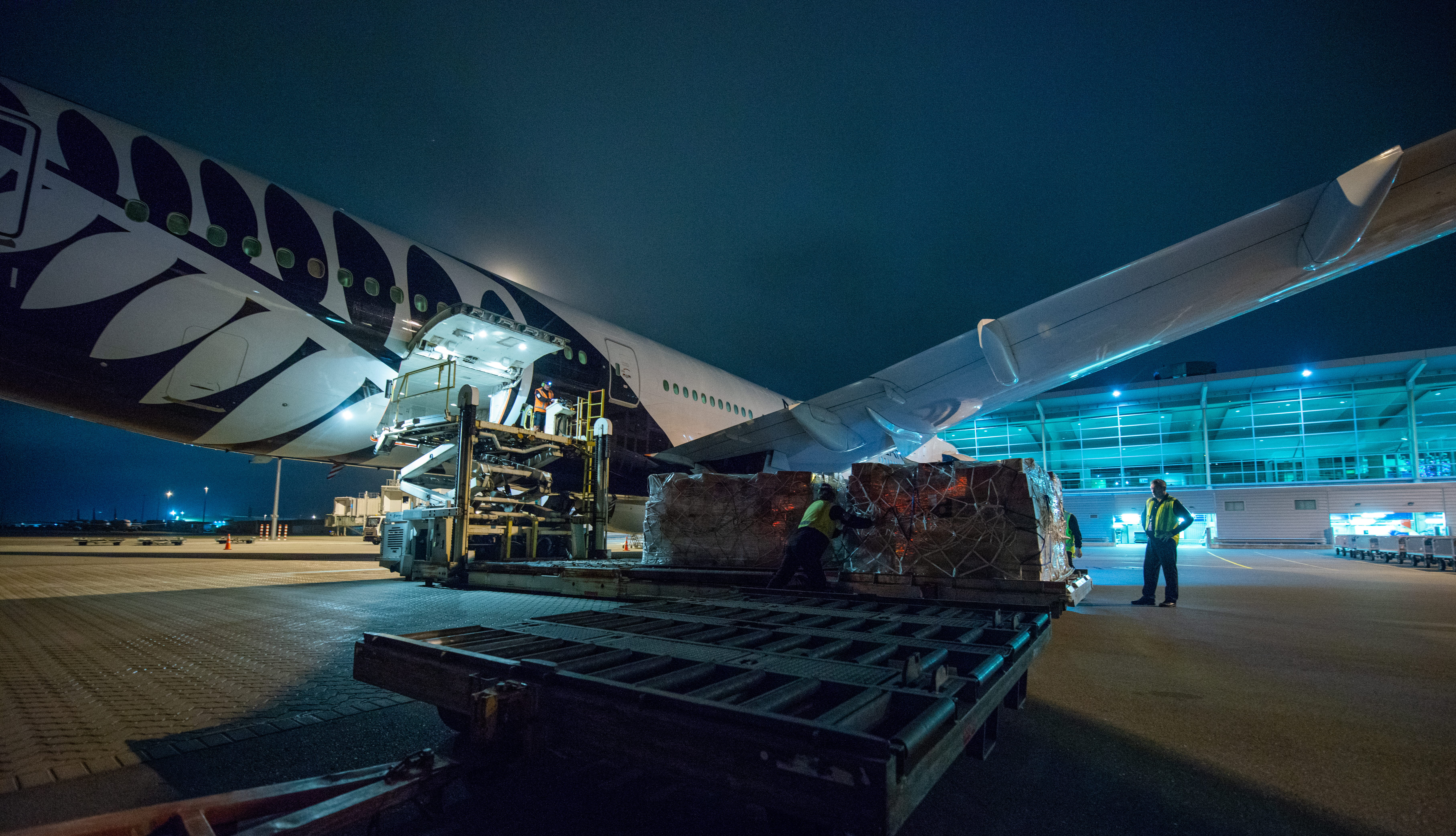2 Dec 2020
South Island produce flying to international dinner tables
We might not be flying overseas for Christmas, but high value South Island produce will be.
New Zealand lamb will be served on British Christmas dinner tables, and in other parts of the world our live crayfish, fruit, produce and halal meat will be among tasty delicacies.
Through the Government’s International Air Freight Capacity (IAFC) scheme, funding has been provided to airlines for freight flights to ensure our high value products get to the markets asking for them, as well as creating jobs for Kiwis as the produce is harvested, prepared and transported.
Christchurch Airport Chief Aeronautical and Commercial Officer, Justin Watson, says working with airlines and the Ministry of Transport to access the IAFC has helped boost the number of freight aircraft flying out of Christchurch Airport this summer.
“With summer being the South Island’s peak export season, we will see up to 30 flights a week operate out of Christchurch by Emirates, Air New Zealand, China Airlines, Singapore Airlines, Qantas and Cathay Pacific taking our exports to the world,” he says.
“Before the borders closed, more than 90% of air freight was carried in the holds of passenger aircraft,” Justin says. “When passenger aircraft stopped, the opportunity to get the perishable produce to the markets did as well.
“We supported the bid from airlines to deliver a network that satisfied the demands on services of our exporters and their freight forwarder partners.”
It’s far from one-way traffic. Our produce needs to get out while it’s in best condition and can fetch top prices, and incoming freight includes critical supplies including medical parts, medicines, artificial heart valves and componentry.
“Air New Zealand’s new 787s have this week begun operating non-stop between Christchurch and Los Angeles, and to parts of Asia, with a commitment to add more flights if the need is there,” Justin says.
“This is very good news all round, because this freight lifeline can be maintained so South Island produce will get to the markets which have always welcomed it.”
